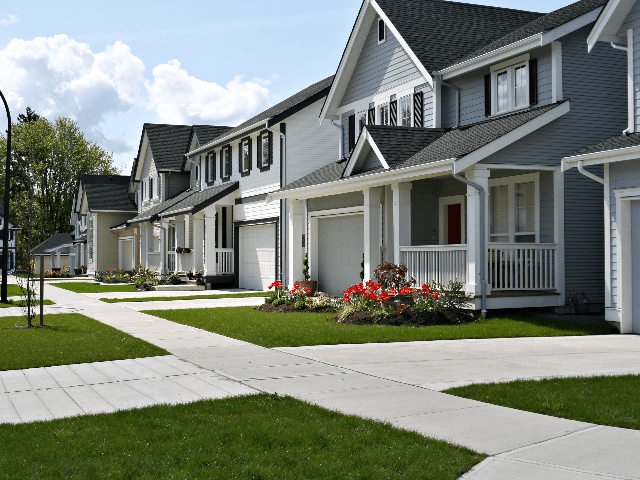The American dream of home ownership should be replaced by corporate investors snapping up houses and turning them into rentals, one economist is proposing.
Karl W. Smith, an adjunct scholar with the Tax Foundation and Bloomberg columnist, believes that scenario could be positive, even if he doesn’t address the fact home ownership is the main way for the middle class to build wealth.
Smith argues “a nation of renters is not something to fear. In fact, it’s the opposite.”
Smith lays out his argument, including citing the troubling statistic that the 64.3 percent of Americans who owned home in 2016 is the lowest percentage since the U.S. Census Bureau starting keeping track of that data in 1984.
And Smith gave a nod to former President Donald Trump, saying homeownership rebounded during his tenure to 66 percent, “but that trend is likely to be arrested by a housing market that is desperately short on supply and seeing month-over-month price increases greater than they were in the frenzied market of 2006.”
Smith argues that single family homes have historically been an “extremely illiquid asset.”
And, Smith says, the housing landscape has changed:
Houses have typically traded with very little liquidity premium. That meant a relatively low purchase price compared to what it would cost to rent — the equivalent of the dividend from housing investment — and stable prices over time. These two factors made houses a good investment for moderate-income families who often lacked the cash and the risk tolerance for market investments. As investments went, single-family homes were cheap and slowly grew in value in both good times and bad.
In the early 21st century, automated appraisals and mortgage underwriting began to change that. Combined with the repackaging of subprime loans into presumably safer CDOs, they created a far more liquid market for housing. In response, housing prices soared — and became more sensitive to the vagaries of the markets. When investors pulled out of CDOs, buyer financing dried up and the whole housing market crashed.
It may have seemed at the time like a failed experiment. But financialization had changed the housing market forever. Houses are now more prone to be priced high relative to rents, and to see their prices fluctuate with the market. The very features that made home buying an affordable and stable investment are coming to an end.
Smith also blames the change on people who chose to live in single-family home neighborhoods where their families have privacy and security and oppose forced diversity accomplished by installing multi-family units — “existing homeowners are reluctant to agree to development with unknowable effects on the value of their most precious investments. The result is less development — and sky-high rents for any residents not lucky enough to own their own home.”
Smith, however, clearly believes in revising the meaning of the American dream. He thinks corporate investors will see the financial benefits of buying up homes and renting them. And Americans could be more mobile if not tied down with a mortgage.
So he advocates for a nation of renters.
“The U.S. is not quite there yet, and not just because too many people are chasing too few apartments,” Smith concludes. “To see the U.S. as a nation of renters requires a revision of the American Dream of homeownership. This country was always more about new frontiers than comfortable settlements, anyway.”
Follow Penny Starr on Twitter or send news tips to pstarr@breitbart.com.

COMMENTS
Please let us know if you're having issues with commenting.